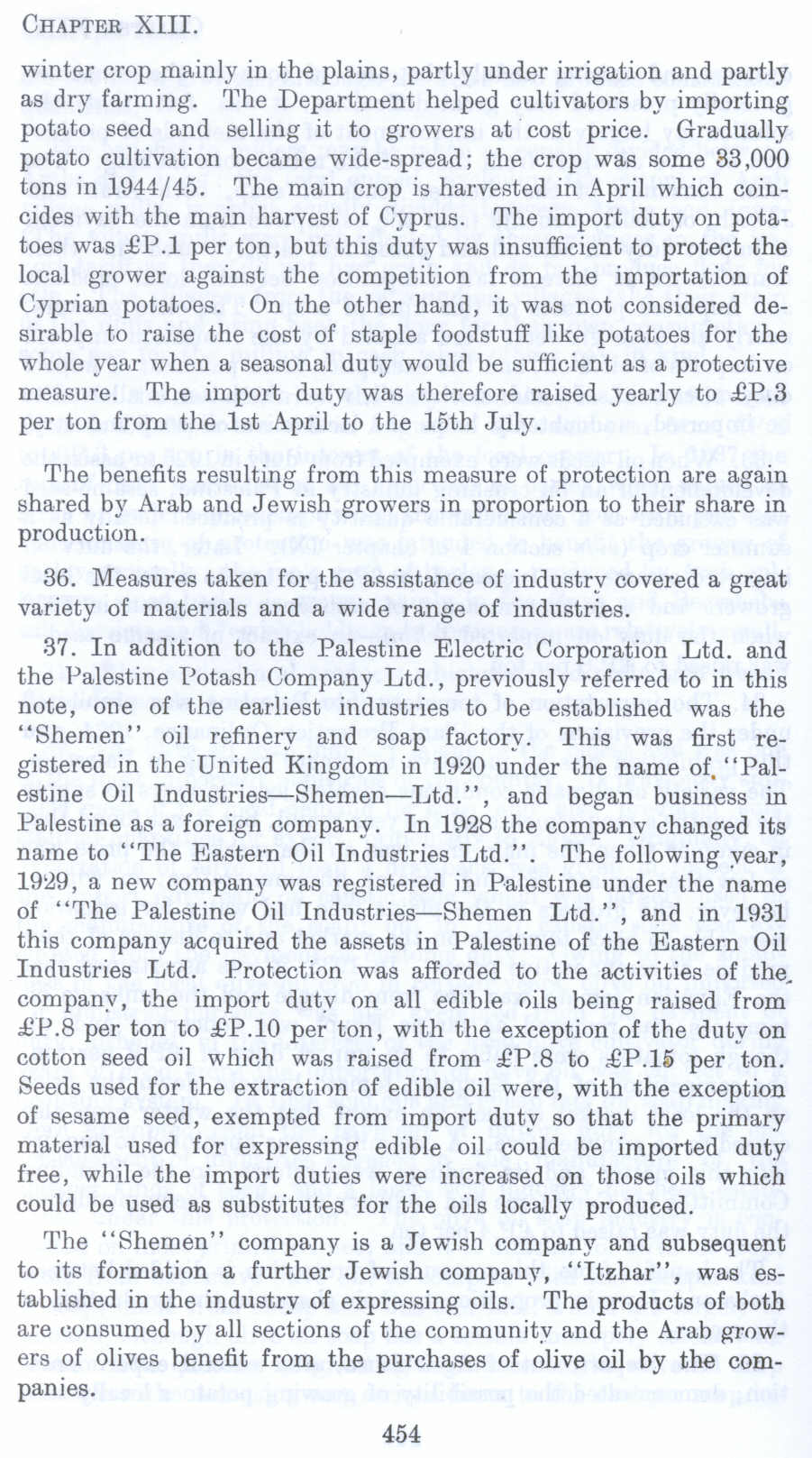| Prev | Next |  |
| Prev | Next |
| PalestineRemembered | About Us | Oral History | العربية | |
| Pictures | Zionist FAQs | Haavara | Maps | |
| Search |
| Camps |
| Districts |
| Acre |
| Baysan |
| Beersheba |
| Bethlehem |
| Gaza |
| Haifa |
| Hebron |
| Jaffa |
| Jericho |
| Jerusalem |
| Jinin |
| Nablus |
| Nazareth |
| Ramallah |
| al-Ramla |
| Safad |
| Tiberias |
| Tulkarm |
| Donate |
| Contact |
| Profile |
| Videos |
British Mandate: A Survey of Palestine: Volume I - Page 454 |
Disclaimer
The above documents, article, interviews, movies, podcasts, or stories reflects solely the research and opinions of its authors. PalestineRemembered.com makes its best effort to validate its contents.


Post Your Comment
*It should be NOTED that your email address won't be shared, and all communications between members will be routed via the website's mail server.
winter crop mainly in the plains, partly under irrigation and partly as dry farming. The Department helped cultivators by importing potato seed and selling it to growers at cost price. Gradually potato cultivation became wide-spread; the crop was some 33 ,000 tons in 1944/45. The main crop is harvested in April which coincides with the main harvest of Cyprus. The import duty on potatoes was £P.1 per ton, but this duty was insufficient to protect the local grower against the competition from the importation of Cyprian potatoes. On the other band, it was not considered desirable to raise the cost of staple foodstuff like potatoes for the whole year when a seasonal duty would be sufficient as a protective measure. The import duty was therefore raised yearly to £P .3 per ton from the 1st April to the 15th July.
The benefits resulting from this measure of protection are again shared by Arab and Jewish growers in proportion to their share in production.
36. Measures taken for the assistance of industry covered a great variety of materials and a wide range of industries.
37. In addition to the Palestine Electric Corporation Ltd. and the Palestine Potash Company Ltd., previously referred to in this note, one of the earliest industries to be established was the "Shemen" oil refinery and soap factory. This was first registered in the United Kingdom in 1920 under the name of. "Palestine Oil Industries-Shemen-Ltd.", and began business in Palestine as a foreign company. In 1928 the company changed its name to "The Eastern Oil Industries Ltd.". The following year, 1929, a new company was registered in Palestine under the name of "The Palestine Oil Industries-e-Shemen Ltd.", and in 1931 this company acquired the assets in Palestine of the Eastern Oil Industries Ltd. Protection was afforded to the activities of the, com pan>', the import duty on all edible oils being raised from £1'.8 per ton to £P.10 per ton, with the exception of the duty on cotton seed oil which was raised from £P.8 to £P.15 per ton. Seeds used for the extraction of edible oil were, with the exception of sesame seed, exempted from import duty so that the primary material used for expressing edible oil could be imported duty free, while the import duties were increased on those oils which could be used as substitutes for the oils locally produced.
The "Bhemen" company is a Jewish company and subsequent to its formation a further Jewish company, "Itzhar", was established in the industry of expressing oils. The products of both are consumed by all sections of the community and the Arab growers of olives benefit from the purchases of olive oil by the companies.
Page 454